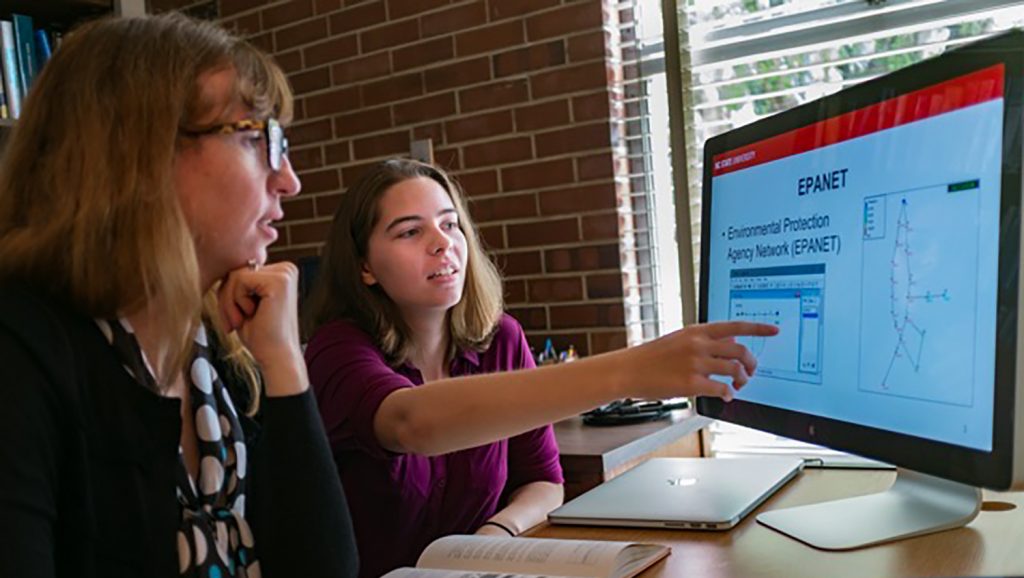Emily Berglund
Professor
Forecasting Landscape and Environmental Change, Water Infrastructure Systems
Civil, Construction and Environmental Engineering
Bio
Emily uses geospatial analytics to investigate the spatial character of socio-technical systems, in which human decision-making affects resource availability and infrastructure performance as resource and infrastructure systems affect human decisions. She develops agent-based models of sociotechnical systems to simulate feedback mechanisms and adaptive behaviors among consumers, infrastructure, and environmental systems. Her interests include optimization models and algorithms to manage the sustainability, security, and resilience of complex infrastructure systems––particularly those managing household water, stormwater, and solar power.

Publications
- Modeling prevention behaviors during the COVID-19 pandemic using Bayesian belief networks and protection motivation theory , RISK ANALYSIS (2024)
- Social distancing, water demand changes, and quality of drinking water during the COVID-19 pandemic , SUSTAINABLE CITIES AND SOCIETY (2024)
- A sociotechnical framework to characterize tipping points in water supply systems , SUSTAINABLE CITIES AND SOCIETY (2023)
- Agent-based modeling to assess decentralized water systems: Micro-trading rainwater for aquifer recharge , JOURNAL OF HYDROLOGY (2023)
- Customer complaint management and smart technology adoption by community water systems , UTILITIES POLICY (2023)
- Digital Twins for Water Distribution Systems , JOURNAL OF WATER RESOURCES PLANNING AND MANAGEMENT (2023)
- A Hybrid Data-Driven-Agent-Based Modelling Framework for Water Distribution Systems Contamination Response during COVID-19 , WATER (2022)
- A Sequential Pressure-Based Algorithm for Data-Driven Leakage Identification and Model-Based Localization in Water Distribution Networks , JOURNAL OF WATER RESOURCES PLANNING AND MANAGEMENT (2022)
- An Agent-Based Model for Contamination Response in Water Distribution Systems during the COVID-19 Pandemic , JOURNAL OF WATER RESOURCES PLANNING AND MANAGEMENT (2022)
- Can Common Pool Resource Theory Catalyze Stakeholder-Driven Solutions to the Freshwater Salinization Syndrome? , ENVIRONMENTAL SCIENCE & TECHNOLOGY (2022)
